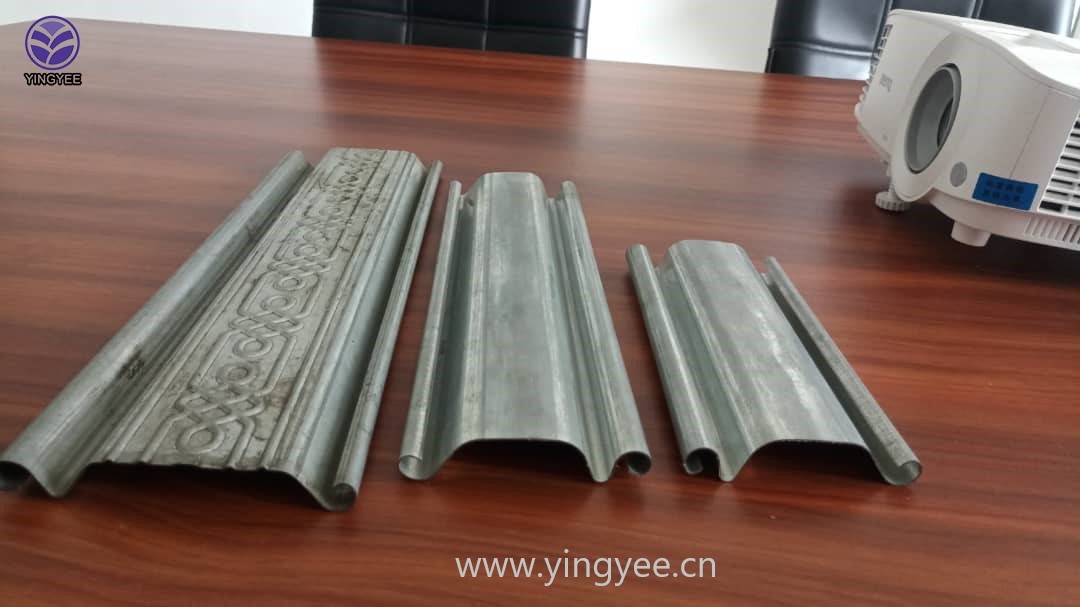
Automatic Downspout Steel Square and Round Pipe Machine Revolutionizing Drainage Solutions
In an era of automation, the demand for efficient manufacturing processes has surged, particularly in the construction and plumbing industries. One notable innovation is the automatic downspout steel square and round pipe machine. This advanced equipment plays a critical role in producing high-quality downspouts that facilitate efficient water drainage, thus protecting buildings from potential water damage.
The Importance of Downspouts
Downspouts are essential components of a building's drainage system. They channel rainwater from the roof to the ground, directing it away from the foundation. Without proper drainage, water can accumulate around a building, leading to structural damage, mold growth, and costly repairs. The design and material quality of downspouts significantly influence their performance. Steel downspouts, whether square or round, are particularly favored for their durability, resistance to corrosion, and aesthetic versatility.
What is an Automatic Downspout Steel Square and Round Pipe Machine?
An automatic downspout steel square and round pipe machine is a specialized piece of machinery used to manufacture downspouts and pipes with precision. The machine automatically processes steel sheets, transforming them into square or round pipes that meet specific dimensions and standards. The automation aspect reduces human labor, increases efficiency, and enhances the overall quality of the final product.
Key Features and Benefits
1. High Efficiency Automated machines can operate continuously with minimal downtime, significantly increasing production rates. This high efficiency is crucial for manufacturers looking to meet growing demand without sacrificing quality.
2. Precision Engineering Automatic machines are equipped with advanced technology to ensure precise measurements and cuts. This precision is vital for downspouts, as any slight deviation can lead to improper installation and potential drainage issues.
3. Versatility The ability to produce both square and round pipes makes these machines versatile. Manufacturers can cater to various market needs by adjusting the settings to produce different shapes and sizes.

4. Cost-Effectiveness Although the initial investment in automated machinery can be significant, the long-term benefits often outweigh the costs. Reduced labor requirements, increased production speed, and lower waste rates translate to higher profit margins.
5. Quality Control Automatic machines often include integrated quality control systems that monitor the production process in real-time. This ensures that any defects can be identified and rectified immediately, resulting in a consistent and high-quality end product.
6. Reduced Labor Dependency With automation, manufacturers can reduce their reliance on manual labor. This not only minimizes labor costs but also mitigates the risks associated with labor shortages, which can affect production timelines.
The Manufacturing Process
The manufacturing process begins with feeding steel sheets into the machine, where they are cut into pre-determined lengths. The machine then shapes the steel through various stages, including rolling, bending, and welding, depending on whether the desired product is a square or round pipe. After the shaping process, the pipes are thoroughly inspected and, if necessary, treated for corrosion resistance.
Future of Downspout Manufacturing
As technology continues to advance, the capabilities of automatic downspout steel square and round pipe machines are likely to improve. Innovations such as artificial intelligence and machine learning could lead to even greater efficiencies and better quality control. Furthermore, with growing environmental concerns, there may be a shift towards more sustainable materials and practices in the manufacturing process.
Conclusion
The automatic downspout steel square and round pipe machine represents a significant leap forward in the production of effective drainage solutions. By combining speed, precision, and quality, these machines not only improve the manufacturing process but also contribute to the overall safety and durability of building infrastructure. As industries continue to embrace automation, the future of downspout production looks promising, paving the way for smarter, more efficient construction practices.